A month ago today, I gave my first ever IATEFL talk in Belfast: Breaking Stigma, Building Skills: Representing Mental Illness in ELT Materials. Given that the subject of mental illness often makes people squirm awkwardly and look away, I wasn’t expecting much of an audience or a response to the topic.
I couldn’t have been more wrong. It seems I’m far from alone in wanting to see mental health challenges (the term I prefer to use for mental illness) represented in ELT materials. So, in case you couldn’t make it to IATEFL, here’s a quick summary of what the session was about.
The title of my talk sort of gives the game away. In a nutshell, my argument was (and is) that mental health challenges should be represented in ELT materials for a couple of reasons. Firstly, mental health challenges are highly stigmatised, but representations of mental health challenges can help reduce stigma. Secondly, one in four of us will experience a mental health challenge in our lifetime and we need to equip students with the skills and language to deal with their own mental health and that of others.
To show how this kind of representation could be achieved, I shared my own materials that showed different approaches to the inclusion of mental health challenges. The first, a reading lesson about panic attacks, is similar to something you might see in today’s ELT materials. Check out two pages of the lesson below.
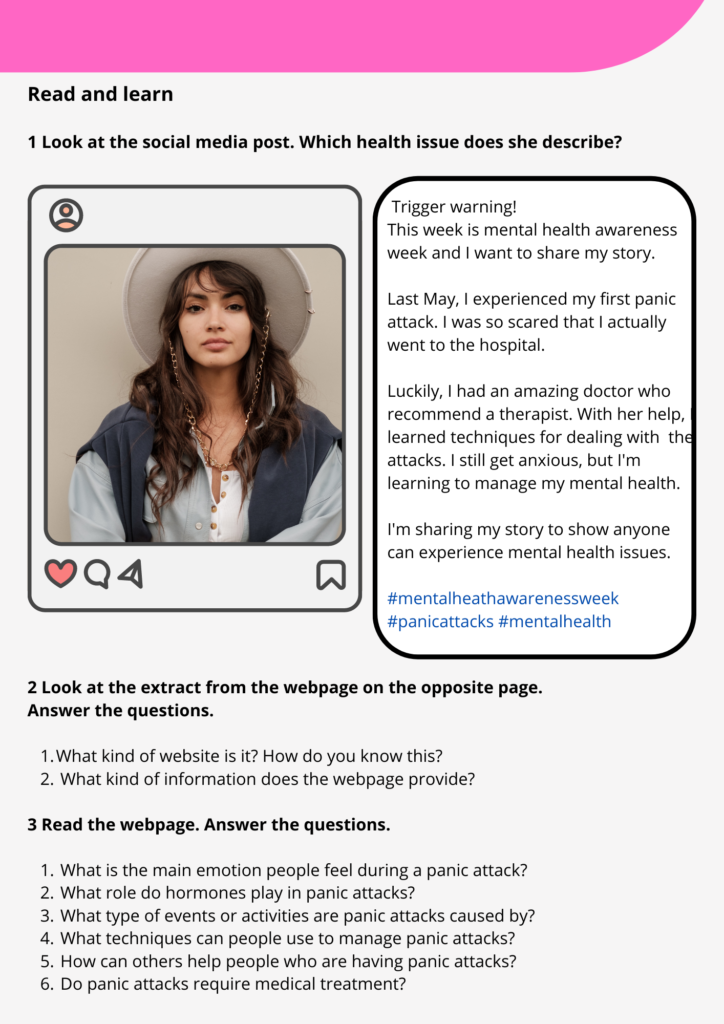
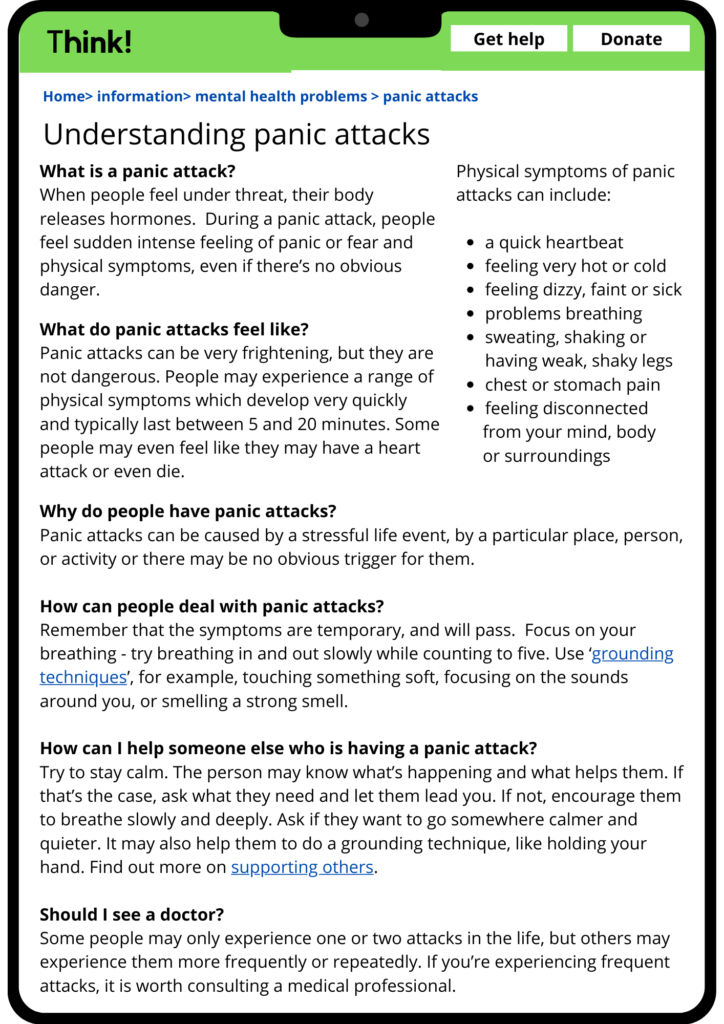
The other examples showed a more usualised approach and represented mental health challenges in an incidental way. The first of these was a reading text that represented OCD. You can see this in the image below. The other was a listening script that represented the everyday experience of having anxiety.
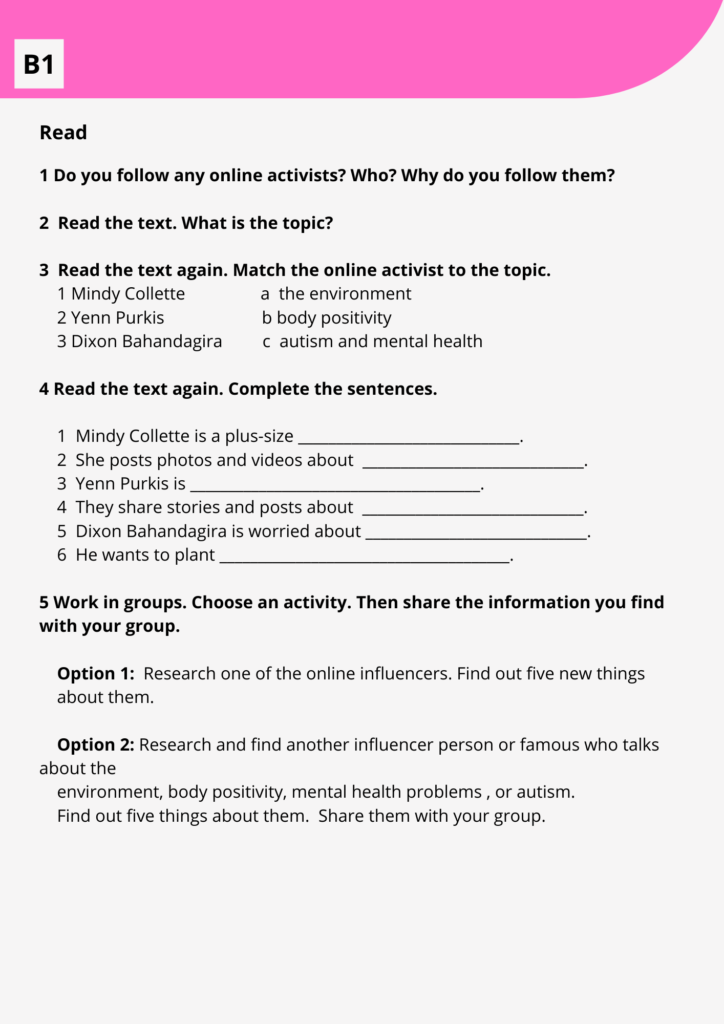
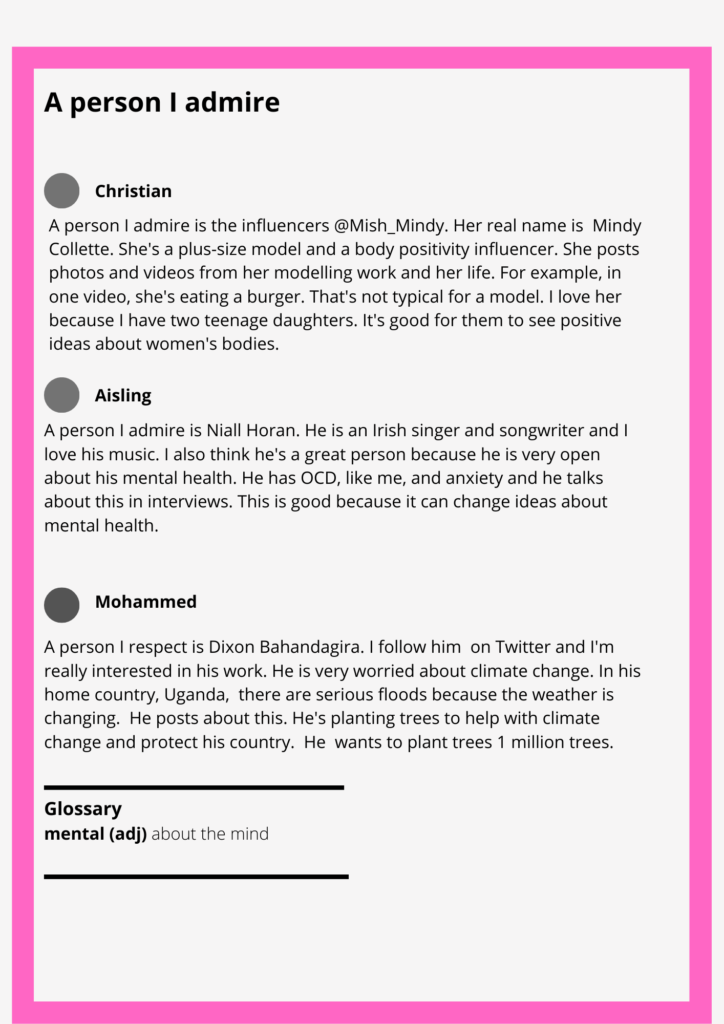
For all of the materials, I looked at how Teacher’s Books could and should support teachers and students who are using materials that touch on challenging topics. I also shared some ideas about the thorny topic of how teachers can deal with potentially triggering topics, like mental health challenges.
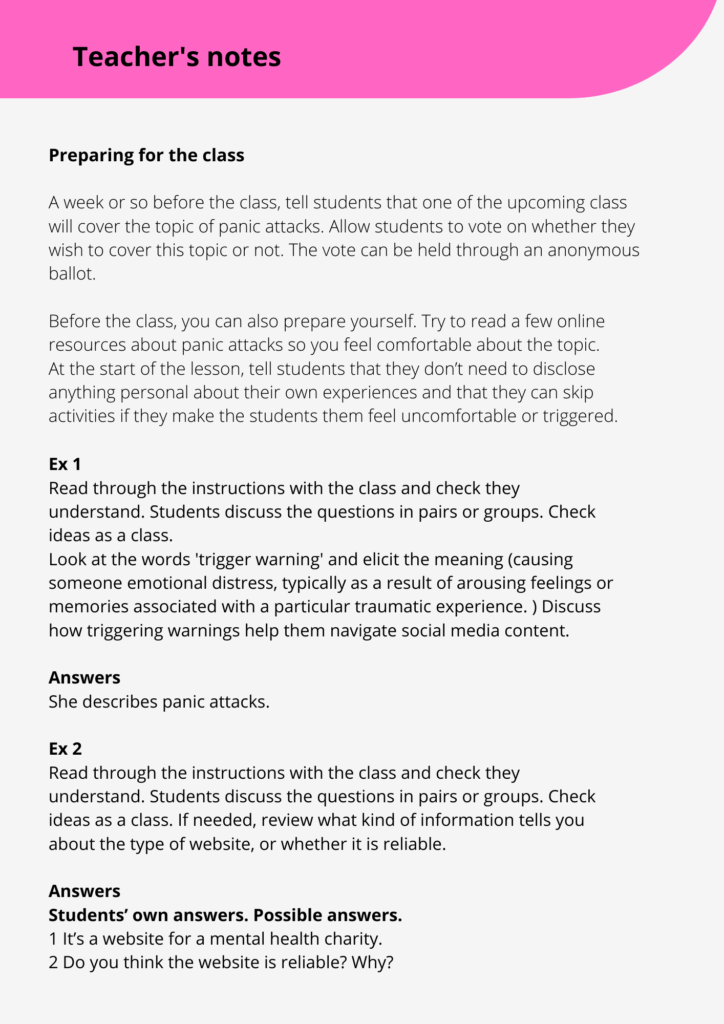

Finally, I made it clear that my talk was the start of a conversation. I fully acknowledge that each teaching context may require a different approach in terms of representing mental health challenges. So, more dialogue and research around this topic is needed before we start including it in published projects.
With that in mind, I’m hatching a plan to do some research about inclusive materials with teachers. This is all still taking shape, but if you’re a teacher who’d like to trial some inclusive materials next year, please do drop me a line at lottie@lottiegalpin.
And, if you’d like to get a couple of other perspectives of the talk, Sandy Millin and Phil Longwell wrote great summaries of what I covered.
Lottie Galpin is a DEI in ELT consultant, trainer, editor and writer. To find out more about her work and her courses for freelance editors and writers, check out www.lottiegalpin.com.


